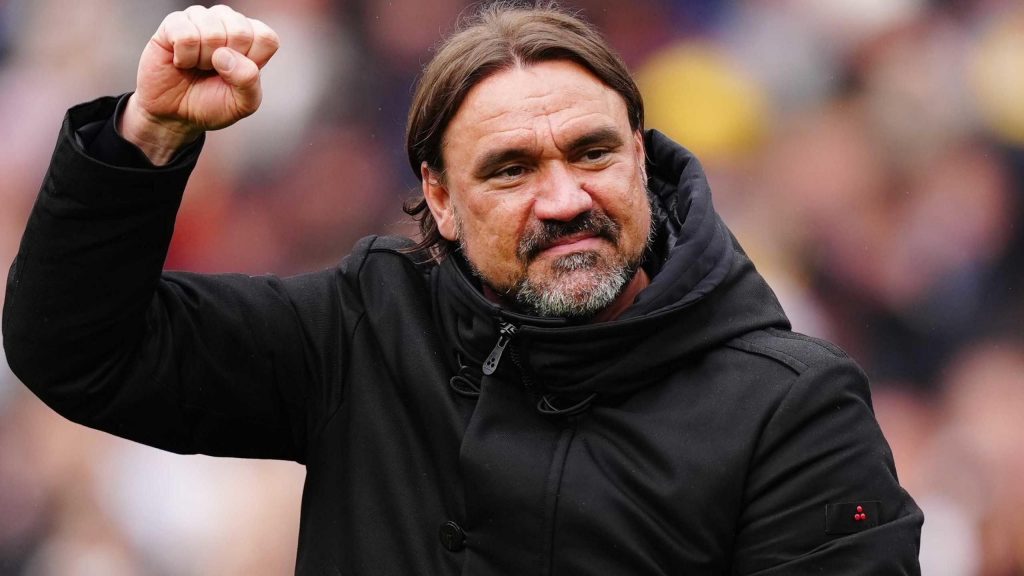But Is Farke Built for the Premier League?
Leeds United have been a joy to watch this season, setting the pace since the halfway point of the campaign. They amassed over 100 points and scored freely—just enough to edge out closest challengers Burnley in a title race that saw both sides reach a century of points. The high-intensity pressing and possession-based football of Daniel Farke has swept aside much of the competition—hallmarks of a manager now celebrating his third Championship title.
Under his guidance, Leeds have been dominant, relentless, and often irresistible.
A Familiar Dilemma for a Familiar Face in Farke
But with promotion and the title secured, should the club now consider leaving their Championship specialist behind?
Daniel Farke twice guided Norwich City to the Premier League, each time as a worthy champion of the second tier.
Yet on both occasions, his side dropped straight back down—finishing bottom of the Premier League.
That track record raises a difficult question: is Farke the man to finally make it work for Leeds at the top level?
Has he reached his ceiling, or can he adapt tactically to the league above?
Or are some managers simply second-tier promotion specialists by nature?
The Rise of the ‘Championship Virtuoso’
Football has long recognized the “Premier League survival expert”—old-school managers like Sam Allardyce, Sean Dyche, and Tony Pulis, who built reputations for keeping clubs afloat through structure, grit, and experience.
But now, is there an emerging category just beneath them: the Championship virtuoso?
These are typically younger coaches who dazzle in the second tier with expansive, attacking football, yet struggle to bridge the gap when the quality leaps in the top flight and a more adaptable, pragmatic approach is needed.
Farke is not alone. Russell Martin, Chris Wilder, and even Vincent Kompany all share a similar pattern—impressive Championship campaigns built on identity and style, only to be met with relegation battles—or the sack—within their first year in the Premier League.
It’s becoming a familiar narrative, and one Leeds may now be forced to reckon with.

Backed by the Board—for Now
Leeds chairman Paraag Marathe—perhaps otherwise occupied as his group explores acquiring Scottish side Rangers—recently gave his manager the elusive vote of confidence, stating:
“I have ended the speculation. He is my man.”
So, the likes of Pulis, Dyche, and Roy Hodgson can leave their phones on silent—for now at least.
Promotion Was the Job—But What Comes Next?
In fairness, Farke has delivered exactly what was asked of him: promotion, and in style.
But the club’s ambitions won’t be satisfied with merely returning to the Premier League—they’ll want to stay there and rebuild toward where their fanbase believes they belong: the top of English football.
For now, Farke deserves the chance to show he’s learned from past shortcomings and can finally crack the code of Premier League survival.
But the decision to publicly back him could prove pivotal. It may define not only next season but the long-term trajectory of the club.
Will Leeds establish themselves once again as a top-flight mainstay, or are they destined to join the ranks of modern yo-yo clubs—trapped in a perennial cycle of promotion and relegation?
Time will tell.





